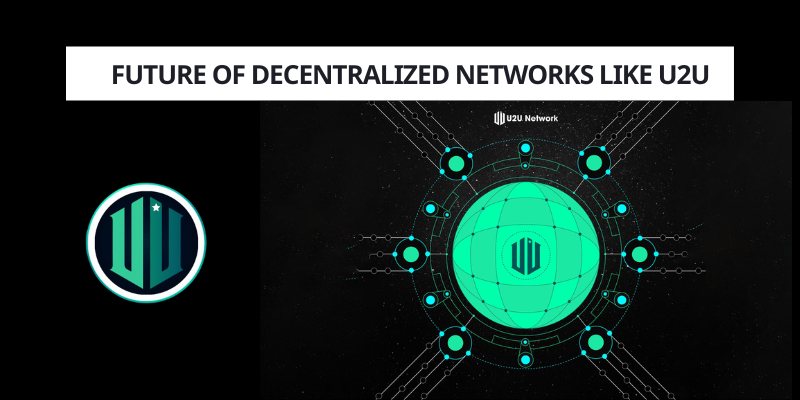The Future of Decentralized Networks Like U2U: Revolutionizing Infrastructure
In an era where digital connectivity underpins global economies, the future of decentralized networks like U2U is poised to redefine how we manage and interact with physical and digital infrastructure. The rise of Decentralized Physical Infrastructure Networks (DePIN) marks a transformative shift, leveraging blockchain technology to create scalable, secure, and community-driven systems. At the forefront of this movement is U2U Network, a Layer-1 blockchain platform that exemplifies the potential of decentralized networks to address real-world challenges.
Contents
The Rise of DePIN and U2U’s Role
Decentralized networks are moving beyond theoretical constructs to practical applications, with DePIN emerging as a game-changer. Unlike traditional centralized systems, DePIN distributes control across a network of nodes, enhancing resilience and transparency. U2U Network, with its Directed Acyclic Graph (DAG)-based architecture and Ethereum Virtual Machine (EVM) compatibility, is a pioneer in this space. Its modular subnet technology allows developers to create customized, scalable sub-networks tailored to specific needs, from IoT to telecommunications.

The future of decentralized networks like U2U lies in their ability to solve the blockchain trilemma—balancing security, scalability, and decentralization. U2U’s Helios Consensus protocol, combining asynchronous Byzantine Fault Tolerance (aBFT) and Delegated Proof of Stake (DPoS), achieves up to 72,000 transactions per second (TPS) with a finality time of 650 milliseconds. This performance makes it an ideal infrastructure for DePIN applications, such as decentralized VPNs (U2DPN), which already boast over 60,000 contributor nodes globally.
Transforming Industries
The future of decentralized networks like U2U is not limited to cryptocurrency markets; it extends to industries like healthcare, finance, and energy. For instance, U2U’s decentralized storage networks (DSNs) fragment and encrypt data across multiple nodes, offering a secure alternative to centralized cloud storage. This approach mitigates risks of data breaches, a growing concern in an interconnected world. Similarly, U2U’s support for decentralized identities (DID) and IoT integration enables secure data sharing and automation, revolutionizing supply chains and smart cities.
In finance, U2U’s DeFi initiatives facilitate faster, cheaper transactions, making financial services accessible to underserved populations. GameFi and NFT projects also thrive on U2U’s low-latency platform, enabling true asset ownership and play-to-earn models. As the DePIN market, valued at $32.6 billion in 2024, continues to grow, U2U’s ecosystem is attracting over 650 projects across computing, AI, and storage subsectors.
Challenges and Opportunities
Despite their promise, the future of decentralized networks like U2U faces hurdles. Scalability remains a challenge, as distributing data across nodes can introduce latency. U2U addresses this through sharding and efficient consensus algorithms, but widespread adoption requires compatibility with existing systems. Regulatory uncertainty also looms, as governments grapple with decentralizing control. However, U2U’s strategic partnerships with AWS, Klaytn Foundation, and IoTeX, along with $13.8 million in funding from investors like KuCoin Ventures, position it to navigate these complexities.

The future of decentralized networks like U2U hinges on community participation. U2U’s DePIN Subnet Node Sale, launched in October 2024, allows users to operate nodes using everyday devices, earning rewards from a 1-billion-token pool. This democratizes access to decentralized infrastructure, fostering a user-driven marketplace for resources like bandwidth and storage.
A Vision for Utopia
U2U Network’s rebranding to “Unleash the Utopia” reflects its ambitious vision for a sustainable, decentralized ecosystem. By integrating AI, DePIN, and modular technology, U2U is laying the groundwork for a future where efficiency, privacy, and empowerment converge. As one X user noted, “U2U Network is building the infrastructure of tomorrow… creating a borderless, secure, and truly decentralized ecosystem.”
The future of decentralized networks like U2U is bright, with potential to reshape global infrastructure. As adoption grows, U2U’s innovative approach could set the standard for how decentralized networks operate, driving a new era of connectivity and opportunity.